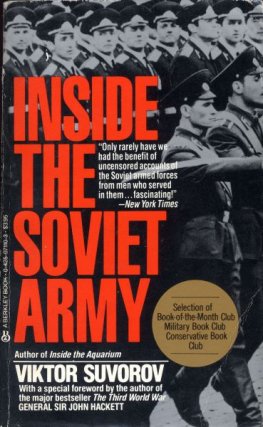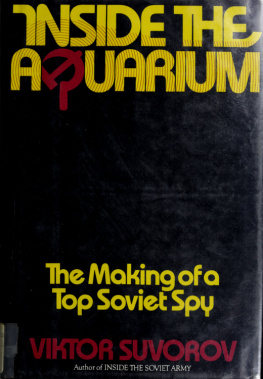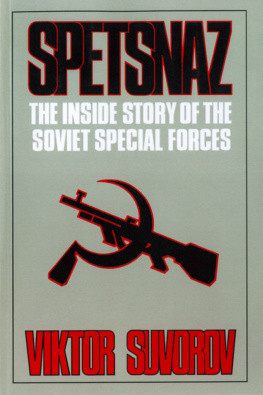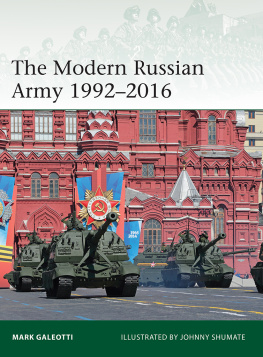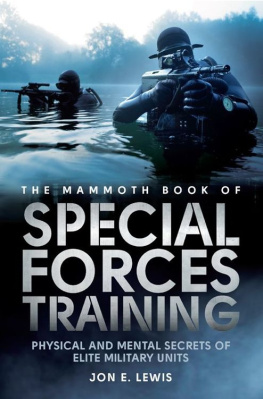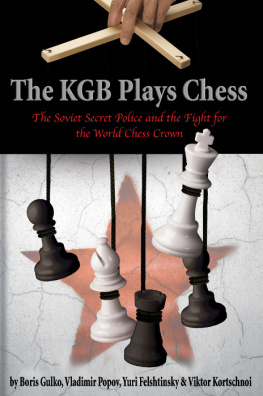Viktor Suvorov - Spetsnaz: The Inside Story of the Soviet Special Forces
Here you can read online Viktor Suvorov - Spetsnaz: The Inside Story of the Soviet Special Forces full text of the book (entire story) in english for free. Download pdf and epub, get meaning, cover and reviews about this ebook. year: 1988, publisher: W. W. Norton & Company, genre: Politics. Description of the work, (preface) as well as reviews are available. Best literature library LitArk.com created for fans of good reading and offers a wide selection of genres:
Romance novel
Science fiction
Adventure
Detective
Science
History
Home and family
Prose
Art
Politics
Computer
Non-fiction
Religion
Business
Children
Humor
Choose a favorite category and find really read worthwhile books. Enjoy immersion in the world of imagination, feel the emotions of the characters or learn something new for yourself, make an fascinating discovery.

- Book:Spetsnaz: The Inside Story of the Soviet Special Forces
- Author:
- Publisher:W. W. Norton & Company
- Genre:
- Year:1988
- Rating:4 / 5
- Favourites:Add to favourites
- Your mark:
- 80
- 1
- 2
- 3
- 4
- 5
Spetsnaz: The Inside Story of the Soviet Special Forces: summary, description and annotation
We offer to read an annotation, description, summary or preface (depends on what the author of the book "Spetsnaz: The Inside Story of the Soviet Special Forces" wrote himself). If you haven't found the necessary information about the book — write in the comments, we will try to find it.
Spetsnaz: The Inside Story of the Soviet Special Forces — read online for free the complete book (whole text) full work
Below is the text of the book, divided by pages. System saving the place of the last page read, allows you to conveniently read the book "Spetsnaz: The Inside Story of the Soviet Special Forces" online for free, without having to search again every time where you left off. Put a bookmark, and you can go to the page where you finished reading at any time.
Font size:
Interval:
Bookmark:
In order to grasp the history behind spetsnaz it is useful to cast our minds back to the British Parliament in the time of Henry VIII. In 1516 a Member of the Parliament, Thomas More, published an excellent book entitled Utopia. In it he showed, simply and persuasively, that it was very easy to create a society in which universal justice reigned, but that the consequences of doing so would be terrible. More describes a society in which there is no private property and in which everything is controlled by the state. The state of Utopia is completely isolated from the outside world, as completely as the bureaucratic class rules the population. The supreme ruler is installed for his lifetime. The country itself, once a peninsula, has after monumental efforts on the part of the population and the army to build a deep canal dividing it from the rest of the world, become an island. Slavery has been introduced, but the rest of the population live no better than slaves. People do not have their own homes, with the result that anybody can at any time go into any home he wishes, a system which is worse even than the regulations in the Soviet Army today, in which the barracks of each company are open only to soldiers of that company.
In fact the system in Utopia begins to look more like that in a Soviet concentration camp. In Utopia, of course, it is laid down when people are to rise (at four oclock in the morning), when they are to go to bed and how many minutes rest they may have. Every day starts with public lectures. People must travel on a group passport, signed by the Mayor, and if they are caught without a passport outside their own district they are severely punished as deserters. Everybody keeps a close watch on his neighbour: Everyone has his eye on you.
With fine English humour Thomas More describes the ways in which Utopia wages war. The whole population of Utopia, men and women, are trained to fight. Utopia wages only just wars in self-defence and, of course, for the liberation of other peoples. The people of Utopia consider it their right and their duty to establish a similarly just regime in neighbouring countries. Many of the surrounding countries have already been liberated and are now ruled, not by local leaders, but by administrators from Utopia. The liberation of the other peoples is carried out in the name of humanism. But Thomas More does not explain to us what this humanism is. Utopias allies, in receipt of military aid from her, turn the populations of the neighbouring states into slaves.
Utopia provokes conflicts and contradictions in the countries which have not yet been liberated. If someone in such a country speaks out in favour of capitulating to Utopia he can expect a big reward later. But anyone who calls upon the people to fight Utopia can expect only slavery or death, with his property split up and distributed to those who capitulate and collaborate.
On the outbreak of war Utopias agents in the enemy country post up in prominent places announcements concerning the reward to be paid to anyone killing the king. It is a tremendous sum of money. There is also a list of other people for whose murder large sums of money will be paid.
The direct result of these measures is that universal suspicion reigns in the enemy country.
Thomas More describes only one of the strategems employed, but it is the most important:
When the battle is at its height a group of specially selected young men, who have sworn to stick together, try to knock out the enemy general. They keep hammering away at him by every possible method - frontal attacks, ambushes, long-range archery, hand-to-hand combat. They bear down on him in a long, unbroken wedge-formation, the point of which is constantly renewed as tired men are replaced by fresh ones. As a result the general is nearly always killed or taken prisoner -unless he saves his skin by running away.
It is the groups of specially selected young men that I want to discuss in this book.
* * *
Four hundred years after the appearance of Utopia the frightful predictions of that wise Englishman became a reality in Russia. A successful attempt was made to create a society of universal justice. I had read Thomas Mores frightening forecasts when I was still a child and I was amazed at the staggering realism with which Utopia was described and how strikingly similar it was to the Soviet Union: a place where all the towns looked like each other, people knew nothing about what was happening abroad or about fashion in clothes (everybody being dressed more or less the same), and so forth. More even described the situation of people who think differently. In Utopia, he said, It is illegal for any such person to argue in defence of his beliefs.
The Soviet Union is actually a very mild version of Utopia - a sort of Utopia with a human face. A person can travel in the Soviet Union without having an internal passport, and Soviet bureaucrats do not yet have such power over the family as their Utopia counterparts who added up the number of men and women in each household and, if they exceeded the number permitted, simply transferred the superfluous members to another house or even another town where there was a shortage of them.
The Communists genuinely have a great deal left to do before they bring society down to the level of Utopia. But much has already been done, especially in the military sphere, and in particular in the creation of specially selected groups of young men.
It is interesting to note that such groups were formed even before the Red Army existed, before the Red Guard, and even before the Revolution. The origins of spetsnaz are to be found in the revolutionary terrorism of the nineteenth century, when numerous groups of young people were ready to commit murder, or possibly suicide, in the cause of creating a society in which everything would be divided equally between everybody. As they went about murdering others or getting killed themselves they failed to understand one simple truth: that in order to create a just society you had to create a control mechanism. The juster the society one wants to build the more complete must be the control over production and consumption.
Many of the first leaders of the Red Army had been terrorists in the past, before the Revolution. For example, one of the outstanding organisers of the Red Army, Mikhail Frunze, after whom the principal Soviet military academy is named, had twice been sentenced to death before the Revolution. At the time it was by no means easy to get two death sentences. For organising a party which aimed at the overthrow of the existing regime by force, Lenin received only three years of deportation in which he lived well and comfortably and spent his time shooting, fishing and openly preaching revolution. And the woman terrorist Vera Zasulich, who murdered a provincial governor was acquitted by a Russian court. The court was independent of the state and reckoned that, if she had killed for political reasons, it meant that she had been prompted by her conscience and her beliefs and that her acts could not be regarded as a crime. In this climate Mikhail Frunze had managed to receive two death sentences. Neither of them was carried out, naturally. On both occasions the sentence was commuted to deportation, from which he had no great difficulty in escaping. It was while he was in exile that Frunze organised a circle of like-minded people which was called the Military Academy: a real school for terrorists, which drew up the first strategy to be followed up by armed detachments of Communists in the event of an uprising.
The seizure of power by the Bolsheviks demonstrated, primarily to the revolutionaries themselves, that it was possible to neutralise a vast country and then to bring it under control simply and quickly. What was needed were groups of specially selected young men capable of putting out of action the government, the postal services, the telegraph and telephone, and the railway terminals and bridges in the capital. Paralysis at the centre meant that counteraction on the outskirts was split up. Outlying areas could be dealt with later one at a time.
Font size:
Interval:
Bookmark:
Similar books «Spetsnaz: The Inside Story of the Soviet Special Forces»
Look at similar books to Spetsnaz: The Inside Story of the Soviet Special Forces. We have selected literature similar in name and meaning in the hope of providing readers with more options to find new, interesting, not yet read works.
Discussion, reviews of the book Spetsnaz: The Inside Story of the Soviet Special Forces and just readers' own opinions. Leave your comments, write what you think about the work, its meaning or the main characters. Specify what exactly you liked and what you didn't like, and why you think so.

